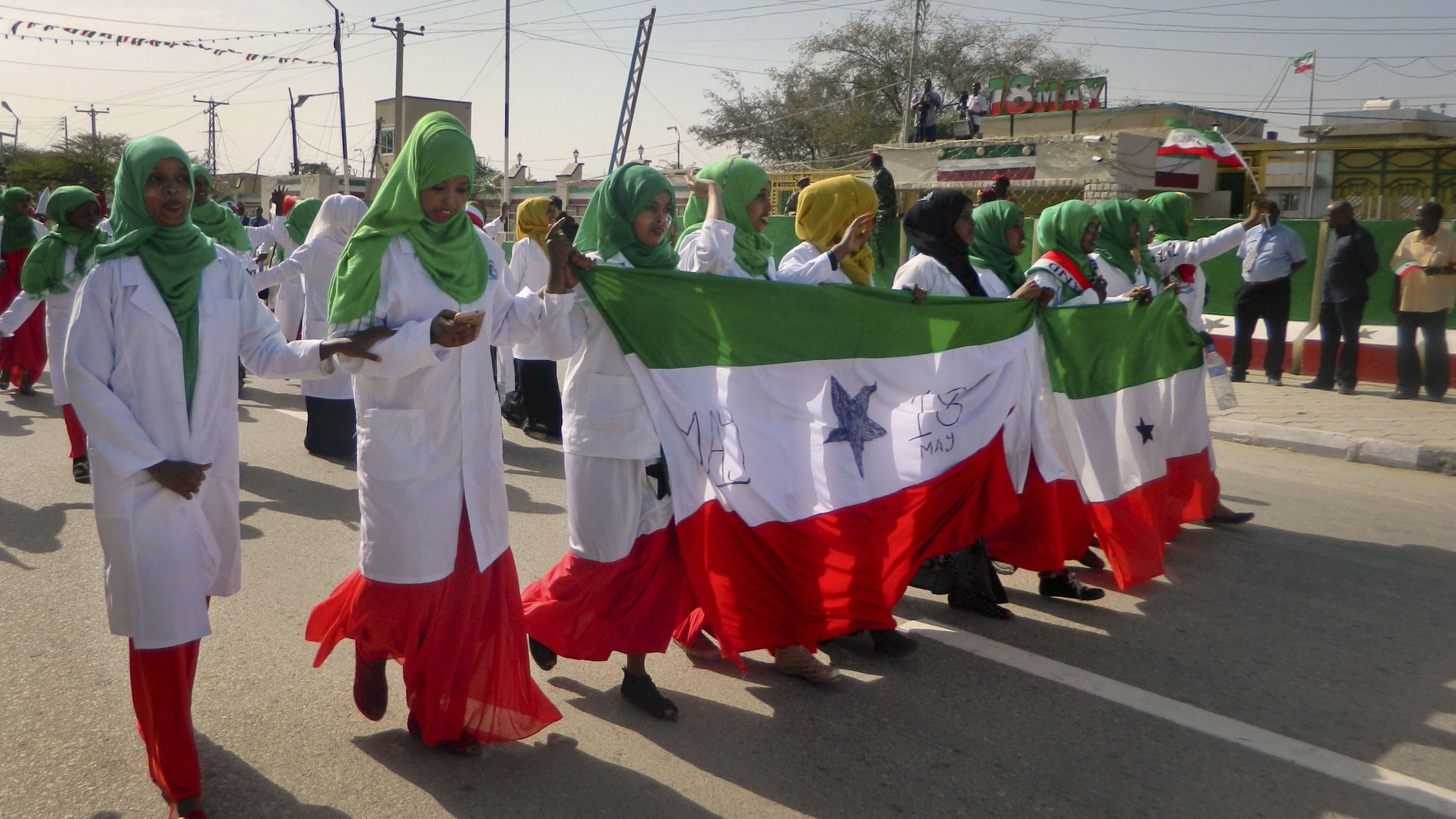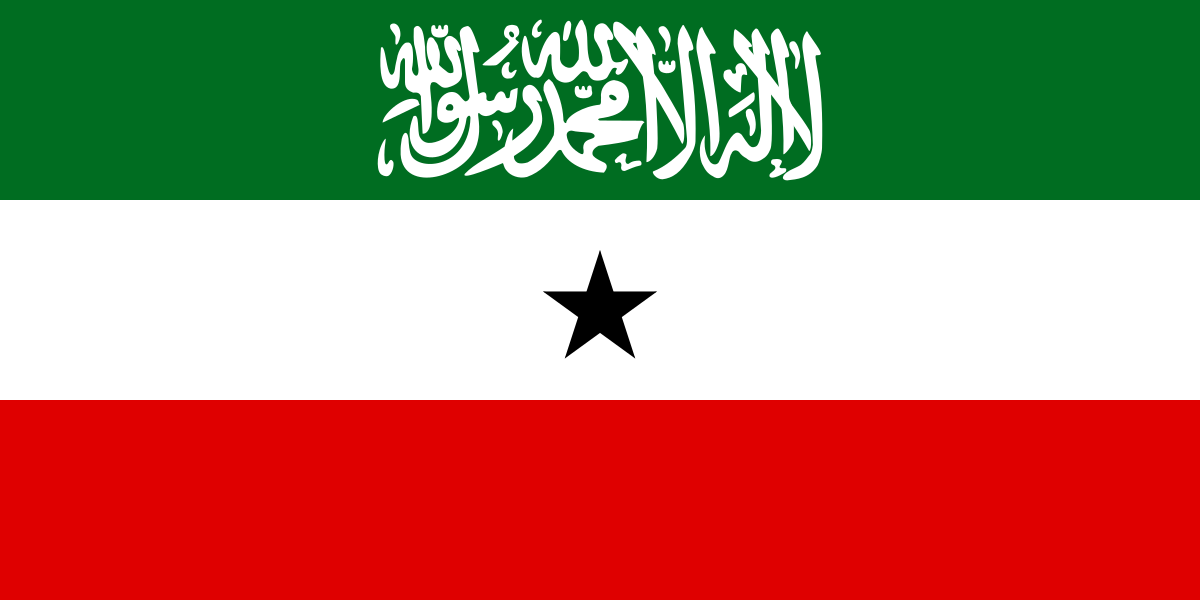
Somaliland - 47.50
109
Doing the best with the hand they were dealt
Somaliland’s independence is simultaneously controversial and uncontroversial. No country on Earth recognizes Somaliland’s independence from Somalia, despite several countries maintaining unofficial diplomatic relations. Despite this, Somaliland’s independence from Somalia is a virtual fact. The two countries share a relatively well-defined border, have separate governments, and maintain different diplomatic agencies. Somaliland claims independence from Somalia and is a functionally independent country, despite lacking any international recognition as such. Somaliland is a bright spot in the Horn of Africa, handily outscoring its neighbors in fields of human rights and democracy. Somaliland is also a relatively free country, though major issues still persist. However, Somaliland’s status as an unrecognized breakaway region has hindered the nation in a number of ways. Nearly half of the country is unemployed, as Somaliland is one of the most difficult countries to run a business in the world, largely as a result of its unrecognized status. A significant portion of the country’s economy comes from remittances. Somaliland has one of the lowest life expectancies of any country on Earth. Corruption is endemic at all levels of society in Somaliland. Somaliland continues to be held back by its unrecognized status, but its future is one of prosperity and development as this troubled nation sets itself apart from an unstable region.
Human Rights - 57
Somaliland retains the death penalty; the last execution was carried out in December 2021. A severe shortage of trained judges has resulted in court backlogs and lengthy pretrial detention times. Prison conditions in Somaliland are generally poor. Hargeisa government agents repeatedly detained agents of the Mogadishu government. Mogadishu government agents were arbitrarily detained, often until the Mogadishu government demanded their extradition. Somaliland has been known to arbitrarily detain journalists as an intimidation tactic. Arbitrarily detained journalists were generally released shortly thereafter. Somaliland has repeatedly arbitrarily detained politicians for calling for reunification. Laws criminalizing the dissemination of “false, exaggerated, or tendentious news” are regularly used to target pro-Mogadishu journalists. Pro-Mogadishu journalists are regularly fined or have their outlets shut down for publishing pro-Somalia content. Talks between the governments of Somalia and Somaliland are often dangerous to cover for journalists. The government liberally deems coverage of these talks a threat to national security or in a pro-Somalia light, and frequently makes arrests based on these judgments. The Somaliland government closely monitors social media and frequently makes arrests based on social media posts. Apostasy and proselytization by non-Muslims are both illegal. Homosexuality is punishable by death, though this law is generally unenforced. Abortion is legal to save the woman’s life. Somaliland received a five-point penalty for an unenforced statute prescribing the death penalty for homosexuality.
Democracy - 71
The president is directly elected. The upper house of parliament is elected from among clan leaders while the lower house is directly elected. Somaliland held its first lower house elections since 2005 in 2021. While elections are free and fair, they are repeatedly subject to delays. The latest presidential elections were delayed by two years, while parliamentary elections were delayed by sixteen. The constitution allows for a maximum of three recognized parties. The three parties that receive the most votes are allowed to participate in the next cycle of national elections. Somaliland experiences regular peaceful transfers of power between rival parties. Clan leaders exert significant sway over politics. Clan elders exert significant sway over politics.
Freedom - 48
The Hargeisa government repeatedly detained agents of the Mogadishu government, who often remained in detention until their extradition was demanded by the Mogadishu government. Somaliland is known to arbitrarily detain journalists as an intimidation tactic; arbitrarily detained journalists are generally released shortly thereafter. Media ownership in Somaliland is highly concentrated and most media outlets in Somaliland have political affiliations. The government-owned broadcaster is the only radio and television news broadcaster in the country. The government is known to conduct arbitrary raids and searches of news offices. Somaliland has repeatedly arbitrarily detained politicians calling for reunification. Laws criminalizing the dissemination of false information are regularly used to target pro-Somalia journalists, who are regularly fined or have their outlets shut down. Coverage of talks between Somalia and Somaliland are often dangerous to cover for journalists, as the government frequently takes a liberal interpretation of “threats to national security” or “pro-Somalia rhetoric” and frequently arrests journalists as a result. The government closely monitors social media and has made arrests based on social media posts. Officially organized protests in Somaliland are rare. The government seemingly arbitrarily decides to shut down certain protests but peaceful assembly is generally allowed. Islam is the state religion, and apostasy and proselytization by non-Muslims are both illegal. Drug laws in Somaliland go generally unenforced, as cultural intolerance is generally a greater barrier to drug use than the law. Khat is cultivated and consumed around the country without consequence. Somaliland allows permitless ownership of one rifle, one shotgun, and one handgun. Somalilanders can apply for a free AK-47 with an ammunition allowance if they can prove that they need it for self-defense and cannot afford it.
Economy - 19
Health - 39
Somaliland has a life expectancy of 55 years and an infant mortality rate of 5.3%. 18.5% of Somalilanders are obese and 10.1% are malnourished. Somaliland is currently working to build a universal healthcare system. Currently, a network of public hospitals provides free care and the national health insurance scheme heavily subsidizes care in private hospitals. Healthcare is of generally high quality in populated areas and the UN and various NGOs provide healthcare in rural areas. 68% of Somalilanders have access to clean, running water. Somaliland received a five-point penalty for having a life expectancy of less than sixty years.
Corruption - 1
The judicial system is subject to bribery at all levels. Police extortion is rampant across the country, especially at road checkpoints. Public services must be bribed into action. Land rights are not adequately protected. Somaliland’s borders are highly porous, including its border with Somalia. Somaliland’s land borders are seldom patrolled (and border patrols are easy to bribe) and Somaliland’s ports are known for lax enforcement of laws and easily bribed customs officers. The Port of Berbera is a major point of smuggling goods into East Africa. When done legally, the import and export process is highly onerous. The government has a fixed exchange rate of Somaliland Dollars to US Dollars (and by extension, all other currencies) and demands an exchange at an absurd rate for every import and export. Public contracts are impossible to obtain without corruption. Somaliland has virtually no legal safeguards against corruption, and as a result, it goes generally unpunished.
Competency - 36
Poverty and corruption remain rampant across the country. Somaliland received a ten-point penalty for its unrecognized status.
Future - 68
Talks with Somalia have repeatedly fallen through, but the fact that these talks are occurring in the first place is a relatively new development and a sign of progress in the right direction. Somaliland’s growing ties with the United Arab Emirates show promise. The United Arab Emirates has shown some signs of becoming the first country to recognize Somaliland’s independence and has been providing the country with significant amounts of foreign aid. Additionally, Somaliland has growing ties with Ethiopia, Djibouti, Denmark, the United States, and most notably, Taiwan. The economy of Somaliland has also been growing steadily, as Emirati and Taiwanese investment has opened up opportunities for legitimate industry in the country.
Actions Abroad - 65
The UAE has funded a number of public works projects in Somaliland, most notably the construction of the Port of Berbera. Somaliland maintains some unofficial relations with Djibouti, Ethiopia, Kenya, Denmark, the United States, and Taiwan. Through the Port of Berbera, Somaliland runs imports and exports for landlocked Ethiopia. Somaliland’s foreign relations are based primarily on gaining international recognition.
29% of Somalilanders live below the international poverty line and Somaliland has no national poverty line. 49.5% of Somalilanders are unemployed. Somaliland has a low economic disparity. The minimum wage in Somaliland is $68 per month. Somaliland is currently working to build a universal healthcare system. Public hospitals offer free care to citizens, and the national health insurance scheme offers heavily subsidized care at private hospitals. UN and NGO facilities offer care in rural areas. Healthcare is of generally high quality in cities, especially by regional standards. The economy of Somaliland shrunk 0.7% in 2020 and grew 2.6% in 2019. The economy of Somaliland is heavily dependent on remittances sent home by Somalilanders working abroad.
